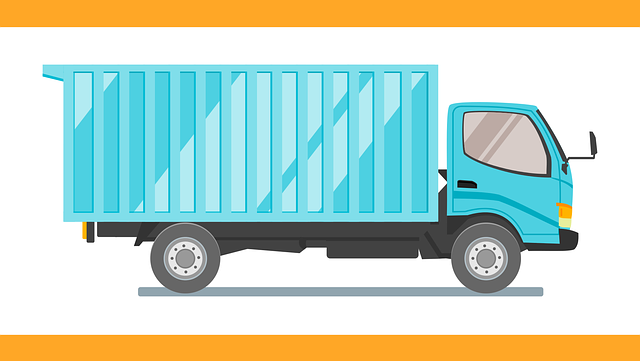Commercial truck insurance is specialized vehicle coverage designed for trucking businesses, offering comprehensive protection including liability, physical damage, cargo security, towing, and business interruption. This type of insurance is crucial for truckers due to high asset value, time on the road, and unique industry risks. Key components include liability coverage, physical damage protection, cargo insurance, medical payments, and specialized endorsements. Effective risk management strategies, such as fleet maintenance, driver training, compliance, and technology use, enhance safety and reduce costly claims, providing peace of mind for trucking businesses.
In the dynamic world of trucking, ensuring comprehensive protection is paramount. This article delves into the intricacies of commercial truck insurance, shedding light on its essential coverage aspects. From understanding the scope of what it entails to exploring why full coverage is indispensable for truckers, we guide you through key components and effective risk management strategies. By navigating these elements, trucking professionals can minimize disruptions and maximize peace of mind.
- Understanding Commercial Truck Insurance: What It Covers
- Why Full Coverage is Essential for Truckers
- Key Components of a Comprehensive Trucking Insurance Policy
- Navigating Claims and Risk Management Strategies
Understanding Commercial Truck Insurance: What It Covers

Commercial truck insurance is a specialized form of vehicle coverage designed to protect trucking businesses and their assets. Unlike personal car insurance, which typically covers a single driver and vehicle, commercial truck insurance offers comprehensive protection for various risks associated with operating heavy-duty trucks and related equipment. This includes liability for damage or injury caused during accidents, as well as physical damage to the truck itself.
The coverage extends beyond traditional liability and collision policies. It often includes specific provisions for cargo protection, ensuring that goods in transit remain secure and undamaged. Additionally, it may cover expenses related to towing, roadside assistance, and even business interruption should a covered event disrupt operations. Understanding these coverage options is crucial for trucking companies aiming to mitigate financial risks and ensure the smooth operation of their fleet.
Why Full Coverage is Essential for Truckers

For truckers, full coverage commercial truck insurance is not just a suggestion—it’s a necessity. As their vehicles are often their most valuable asset and they spend countless hours on the road, protecting against potential risks is paramount. Commercial truck insurance offers comprehensive protection that goes beyond basic liability, covering damages to the truck itself, as well as cargo during transit. This is crucial given the high value of freight and the unique challenges faced by trucking operations, including accidents, natural disasters, and theft.
Full coverage ensures that truckers are prepared for unexpected events that could cripple their business. Without adequate insurance, a single incident could lead to significant financial strain, even bankruptcy. Commercial truck insurance provides peace of mind, offering financial safeguards that enable truckers to continue operations seamlessly. It also protects them from legal liabilities in the event of accidents, ensuring they meet regulatory requirements and minimize financial losses.
Key Components of a Comprehensive Trucking Insurance Policy

When it comes to protecting your trucking business, a comprehensive commercial truck insurance policy is an indispensable tool. This type of insurance goes beyond basic coverage to safeguard against various risks unique to the trucking industry. Key components typically include liability coverage, which protects against damages and injuries caused to others during accidents, ensuring financial security for your company. Additionally, physical damage coverage shields your trucks and equipment from perils like collisions, fire, or vandalism, offering peace of mind and financial reassurance.
Other vital aspects involve cargo insurance to secure the value of your freight, even if it’s damaged or lost in transit, and medical payments coverage for any injuries sustained by drivers or passengers. Moreover, many policies include specific endorsements for specialized trucking operations, such as hauling hazardous materials, ensuring compliance with regulatory requirements and mitigating potential legal issues. Comprehensive commercial truck insurance is a strategic investment that safeguards your assets, mitigates financial risks, and enables you to navigate the road ahead with confidence.
Navigating Claims and Risk Management Strategies

Navigating claims and risk management is a critical aspect of owning or operating a trucking business. Commercial truck insurance plays a pivotal role in mitigating potential financial losses and ensuring smooth operations. When accidents or incidents occur, having comprehensive coverage can help cover repair costs, legal fees, and even medical expenses if someone is injured.
Effective risk management strategies involve regular fleet maintenance checks to minimize mechanical failures, driver training programs to enhance safety awareness, and staying updated on changing regulations. Additionally, leveraging technology for real-time tracking and monitoring can provide valuable insights into driver behavior, helping to identify and address potential risks proactively. Such proactive measures contribute to a safer trucking environment and reduce the likelihood of costly claims.
Commercial truck insurance is not just a requirement, it’s a lifeline for truckers. By opting for full coverage, drivers can navigate the road with peace of mind, knowing they’re protected against potential losses. Understanding the key components and navigating claims effectively enables businesses to mitigate risks and focus on what matters most: safe and efficient trucking operations. Investing in comprehensive insurance is a strategic move that ensures continued success in this competitive industry.
